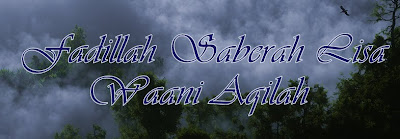(with Outcome-Illustrating Verbs)
Knowledge of terminology; specific facts; ways and means of dealing with specifics (conventions, trends and sequences, classifications and categories, criteria, methodology); universals and abstractions in a field (principles and generalizations, theories and structures):
Knowledge is (here) defined as the remembering (recalling) of appropriate, previously learned information.
defines; describes; enumerates; identifies; labels; lists; matches; names; reads; records; reproduces; selects; states; views; writes;.
=>Our Library: A full range of age-appropriate books covering a variety of themes and styles is provided. Books may or may not relate to themes discussed in class. Children are able to recount their favourite book contents, effectively use new vocabulary and describe scenes and facts from their readings.
Comprehension: Grasping (understanding) the meaning of informational materials.
classifies; cites; converts; describes; discusses; estimates; explains; generalizes; gives examples; illustrates; makes sense out of; paraphrases; restates (in own words); summarizes; traces; understands.
=>Our Library: The children are able to discuss their favourite stories, and reproduce them through their preferred modes of expression. Being able to relate what they have read to the changing specimens and displays provided in the library centre (plants, hamsters, fish, stones and gravel, water, bubbles, terrapins, etc) too comes under this category.
Application: The use of previously learned information in new and concrete situations to solve problems that have single or best answers.
acts; administers; applies; articulates; assesses; charts; collects; computes; constructs; contributes; controls; demonstrates; determines; develops; discovers; establishes; extends; implements; includes; informs; instructs; operationalizes; participates; predicts; prepares; preserves; produces; projects; provides; relates; reports; shows; solves; teaches; transfers; uses; utilizes.
=>Our Library: Children can for instance be put in charge of taking care of the plants in the library, and use information from the books to help them. Do plants need water? Why?
Analysis: The breaking down of informational materials into their component parts, examining (and trying to understand the organizational structure of) such information to develop divergent conclusions by identifying motives or causes, making inferences, and/or finding evidence to support generalizations.
analyzes; breaks down; categorizes; compares; contrasts; correlates; diagrams; differentiates; discriminates; distinguishes; focuses; illustrates; infers; limits; outlines; points out; prioritizes; recognizes; separates; subdivides.
=>Our Library: The different coloured bookcases to indicate different types of books will lead the children to question and differentiate between them. "Why is this book in the red shelf and not the blue?" They will compare and categorise, using the contents of the books as evidence. Props and displays, with encouragement, will also lead to comparisons between pictures (two-dimensional forms) and real or three-dimensional objects.
Synthesis: Creatively or divergently applying prior knowledge and skills to produce a new or original whole.
adapts; anticipates; collaborates; combines; communicates; compiles; composes; creates; designs; develops; devises; expresses; facilitates; formulates; generates; hypothesizes; incorporates; individualizes; initiates; integrates; intervenes; invents; models; modifies; negotiates; plans; progresses; rearranges; reconstructs; reinforces; reorganizes; revises; structures; substitutes; validates.
=>Our Library: Through the dramatisation props and materials provided, children are allowed the chance to role-play as they like. They have free choice to become any of the characters they have encountered. Enacting a scene would require construction, imagination, discovery, exploration, extension and preparation to an end product. They are transferring their new knowledge to their dramatisation and using it to make it work.
Evaluation (On same level as synthesis?): Judging the value of material based on personal values/opinions, resulting in an end product, with a given purpose, without real right or wrong answers.
appraises; compares & contrasts; concludes; criticizes; critiques; decides; defends; interprets; judges; justifies; reframes; supports.
=>Our Library: Asking questions about their work may prompt them to analyse their own work. Which part of it had they liked? Which parts of it would they like to do again differently, and why?
The teacher may facilitate the building of more ambitious or elaborate projects on the children's part.
*Major Categories in the Taxonomy of Educational Objectives
(Bloom 1956) - http://krummefamily.org/guides/bloom.html

No comments:
Post a Comment